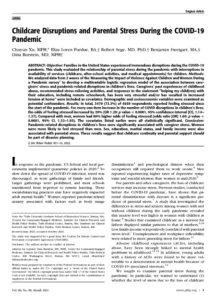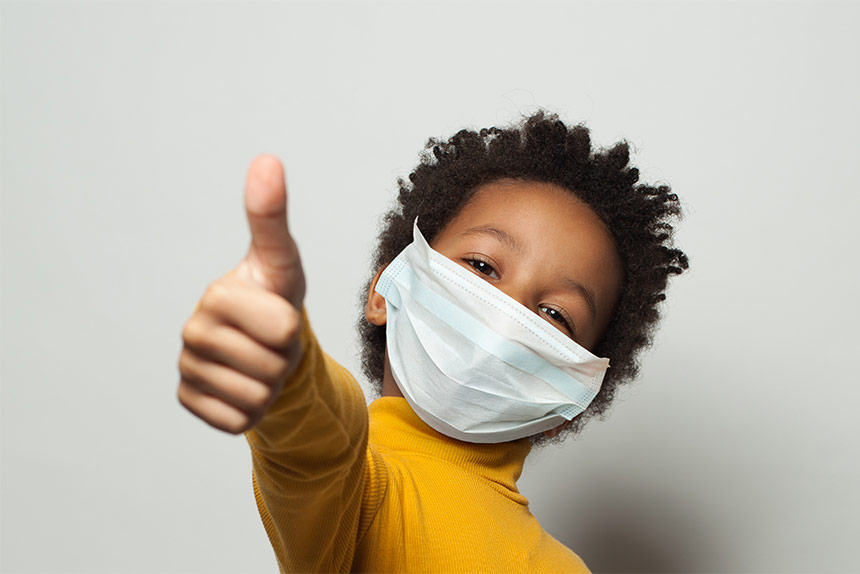Our findings illustrate the link between disruptions in childcare and other services for children and levels of parental stress and highlight the importance of including considerations for childcare and other parental supports in disaster planning and preparation. – Dina Burstein, MD, MPH, FAAP
Pandemic-related disruptions in children’s lives were significantly associated with caregiver stress
 Families in the United States experienced tremendous disruptions during the COVID-19 pandemic. Childcare Disruptions and Parental Stress During the COVID-19 Pandemic, a paper written by Chuyun Xu, MPH and members of the HOPE National Resource Center and Tufts Clinical and Translational Science Institute, evaluated the relationship of parental stress during the pandemic with interruptions in availability of services (childcare, after-school activities, and medical appointments) for children.
Families in the United States experienced tremendous disruptions during the COVID-19 pandemic. Childcare Disruptions and Parental Stress During the COVID-19 Pandemic, a paper written by Chuyun Xu, MPH and members of the HOPE National Resource Center and Tufts Clinical and Translational Science Institute, evaluated the relationship of parental stress during the pandemic with interruptions in availability of services (childcare, after-school activities, and medical appointments) for children.
The authors analyzed data from two waves of the Measuring the Impact of Against Children and Women During a Pandemic survey to develop a multivariable logistic regression model of the association between caregivers’ stress and pandemic-related disruptions. They found that pandemic-related disruptions in children’s lives were significantly associated with caregiver stress. These results suggest that childcare continuity and parental support should be part of disaster planning.
Publication Information
Authors
Chuyun Xu, MPH, Eliza Loren Purdue, BA*, Robert Sege, MD, PHD, FAAP*, Benjamin Sweigart, MA, Dina Burstein, MD, MPH, FAAP*
*Affiliated with the HOPE National Resource Center
Journal
Journal of Developmental & Behavioral Pediatrics
Publication Date
December 20, 2023
Keywords
parental stress, caregiver stress, covid-19 pandemic, pandemic disruptions, child care services, adverse childhood experiences
Citation
Xu, Chuyun MPH; Purdue, Eliza Loren BA; Sege, Robert MD, PhD; Sweigart, Benjamin MA; Burstein, Dina MD, MPH. Childcare Disruptions and Parental Stress During the COVID-19 Pandemic. Journal of Developmental & Behavioral Pediatrics 45(1):p e21-e30, January 2024. | DOI: 10.1097/DBP.0000000000001241




